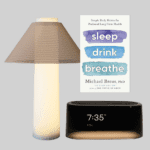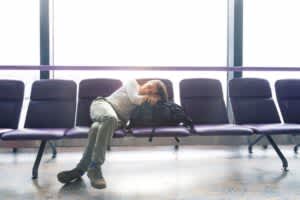We’ve come a long way since the first video game allowed two players to bounce a dot back and forth across a screen. People can now choose between an endless number of options, from games that teach children to read to massive multiplayer online role-playing games in which users interact with one another within a complex virtual reality.
Researchers, parents, and even lawmakers have often wondered about impacts of video games on the brain. As video games continue to increase in popularity, research is beginning to reveal the effects of video games on players’ attention spans, behavior, and sleep patterns.
Studies have confirmed that people who spend a lot of time gaming tend to get less sleep and experience lower sleep quality. Learn more about the factors that may explain the effect of video games on sleep and find healthy sleep tips for reducing the impact of late-night gaming.
How Video Gaming Impacts Sleep
Studies have found that video games are linked to later bedtimes, more difficulty falling asleep, and fewer hours of sleep. Players may also find it more challenging to wake up on time and are at an increased risk of feeling tired the following day.
While a variety of studies have reinforced the link between video games and sleep problems, researchers are still exploring the potential reasons for this connection. Experts have suggested a variety of factors that could help to explain the negative effects of video games on sleep.
Physical and Mental Stimulation
The excitement of playing a video game can stimulate the body’s stress response, which triggers the release of hormones that increase a person’s vitals and promote alertness. While brief surges of stress may help gamers focus and respond to challenges, over time stress can begin to interfere with a person’s ability to fall and stay asleep.
Experts have also theorized that socializing with other players within a video game may stimulate the brain and lead to sleep issues. Gamers may also experience a fear of missing out (FOMO) when playing games with others online. FOMO is an experience in which a person may lose sleep because they feel like they’re missing out on important social interaction.
Delayed Sleep Schedules
Research suggests that playing video games may lead players’ to delay their bedtime or neglect healthy sleep habits, like getting enough physical activity during the day.
Bedtime procrastination describes when a person sacrifices sleep for activities that they find enjoyable. While the effects of losing a whole night of sleep can be drastic, even small amounts of lost sleep can build up over time and contribute to the symptoms of sleep deprivation.
Light Exposure
Looking into the screen of an electronic device like a TV, computer, or handheld video game console exposes players to artificial light that can trick the brain into thinking that it’s daytime. In fact, the body’s internal clock is the most sensitive to light from around two hours before bedtime until one hour after waking.
Screens on electronic devices emit blue light, which is the color of light that has the most significant impact on a person’s sleep patterns. One reason for this is that blue light has been shown to decrease the body’s production of melatonin, a hormone that helps the body regulate when a person feels awake and when they feel sleepy.
How Gaming at Night Affects a Child’s Sleep
Over 75% of children and teens play video games at least once a week. At the same time, more and more young people are bringing TVs, computers, and handheld video game consoles into their bedroom.
As in adults, children who play a lot of video games are prone to delaying their bedtime and having trouble falling asleep. Adolescents who play video games regularly get less sleep than their peers and have a harder time waking up at the right time. Children and teens who play video games may also feel more tired during the day.
Can Video Games Cause Insomnia?
Insomnia is a sleep disorder that makes it difficult to fall asleep, sleep through the night, and wake up on time. Although the causes of insomnia are complex, poor sleep habits and excessive use of video games has been linked to insomnia in both children and adults.
Sleep Tips for Late-Night Gamers
If you play video games at night, there are a few things you can do to lessen the impact that gaming may have on the quality and quantity of your sleep.
- Follow a Consistent Sleep Schedule: Following a consistent sleep schedule where you are going to bed and waking up at the same time can increase the likelihood of having a good night’s sleep. Consider setting a time limit on late-night gaming so that the excitement doesn’t cause you to postpone your bedtime.
- Don’t Neglect Sleep Hygiene: Don’t let video games interfere with maintaining healthy sleep habits like getting some physical activity every day, making sure not to drink caffeine too late in the day, and setting aside around an hour before bedtime to relax and wind down.
- Keep Electronics Out of the Bedroom: Try finding a place to play video games away from your bedroom. Keeping electronics out of the bedroom can help eliminate exposure to light, noise, and other distractions that can disrupt your sleep.
- Blue Light: Limiting artificial light exposure, and blue light in particular, close to bedtime can reduce the impacts of light on your sleep cycle. Consider trying blue light glasses to help ensure that late-night gaming doesn’t interfere with your sleep.
It’s important to talk to your doctor If you find that it’s difficult to stop playing video games or if excessive gaming is interfering with your sleep, work, or relationships. Doctors can give advice for how to improve your sleep and provide support for excessive gaming.
References
The Sleep Doctor Forum: Real Experiences, Real Connections
Continue the discussion on the Sleep Doctor Forum. Connect with experts and fellow forum members on CPAP, sleep apnea, and all things sleep. A priceless resource that’s free to join.


























